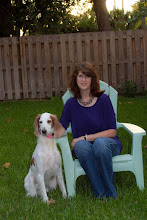As a writer who has always revered the story of “To Kill a
Mockingbird”, I suppose I should have been upset by the revelations that the
Atticus Finch of the first draft of the story had racist views. But I could
only think-that sounds about right. Because my Atticus, my grandfather, also
had feet of clay when it came to prejudices about race.
As a whole character, fleshed out with warts and all, I can
see Atticus in this role, But as a writer, the first thing I’d like to point
out is this-it’s only a first draft. In
the first draft, anything can happen. Characters are still taking shape. When
Marjorie Kinnan Rawlings wrote the stories of Cross Creek, it was at the urging
of her legendary editor, Maxwell Perkins. Writers have a vision and great
editors help to bring the vision to life. That’s why Harper Lee’s editor
suggested she re-tell the story portraying Scout as a little girl.
It’s a first draft,
so let the beloved portrayal stand. As for me, I have two Atticus's in my head
and in real life. Big Daddy was my
Great-Grandfather. He was the Gregory Peck Atticus from the movie, the forward thinking progressive
liberal who saw things that no-one else saw in his day. I never knew him, but
the stories about Big Daddy are legend in my family. He predicted the inter-marriage
of blacks and whites, and knew that the designation of humans as separate or
superior by way of the color of their skin was not only morally wrong, but
scientifically false. He worried that President Roosevelt had too much power
and wanted to vote him out of office after he had served two terms, but my
Grandmother was horrified by the notion. Big Daddy was a progressive visionary, who lived
ahead of his time.
The other Atticus in my life was my Grandfather, whom we
called Pa. Pa was a man who would stop at the roadside and pick up hitchhikers.
If he liked that person, he’d offer them a job or a chance to get ahead. He
visited the sick and elderly in nursing homes on weekends, and when his mother
in law needed a home, he went and got her and brought her South to live in his
home. He was a great man with a good heart. He was the Atticus of the first
draft.
He truly believed that the black man was inferior and would
have to “work with his hands” for several generations before becoming equal or
par to the superior white race. He was, by every definition, a racist. I loved
him dearly, as I loved my father, and both had a tendency to express views that
were not the same as mine about the black race.
Yet my father, who was a lawyer, had many Negro defendants,
and a great long view of justice as it pertained to the equality affording
human rights to all. He believed in equal rights under the law for fair housing
and anti-discrimination laws to protect all people. Seeing issues as a lawyer
would look at them, his mind was trained to believe in justice for all. Yet he
held many racist views of African-Americans. He was a bit more progressive than
my grandfather, but still, he would have been a model for the first draft.
The final draft of the book gave us the Atticus we know and
love. That was and still is the man we want to remember. He is the one we
believe in. And, as someone pointed out the other day, there were many Atticus
Finch’s in our civil rights struggle who worked for equal justice and civil
rights. They were in the crowd when Martin Luther King gave his “I Have a Dream”
speech, they were Freedom Riders on the bus alongside their black brothers and
sisters, and they worked in courts of law and in communities across the nation
to help bring about the end to discriminatory practices in housing and in
education.
They are our unnamed heroes. But my hero was Big Daddy, a
man who lived before his time and was a model for the character portrayed by
Gregory Peck in the film. It gives me hope to think there really was an Atticus
Finch who lived as a role model for the man we knew. And then there was a first draft. As a writer, we also
know this to be true.
You must keep the first draft in your mind as part of the
story. But the first draft is set aside and put in the drawer for a reason. It’s
not the finished product. The finished version is the one we call our own. It is
the work of many minds and is a collaborative effort. I know them both and will
always recall there is a first draft to the story we know and love. But the vision
of Atticus, and the dream he instilled in so many will never die. That is the
Atticus that will stay with me till the day I die.


